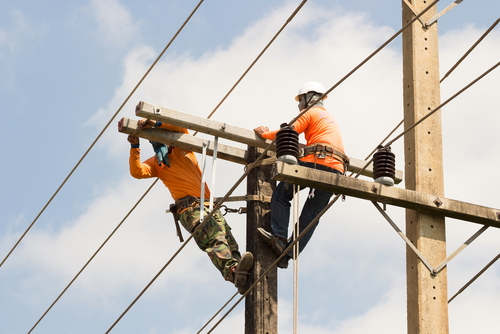Cusi says no to extra funding for sitio electrification
- August 14, 2018
- 0

NEA’s budget was reduced from P1.817 billion this year to P1.163 billion in 2019, amounting to P654 million in overall deduction.
“Cusi said he wants to collaborate with the NEA and Napocor, yet he substantially slashes the budget of NEA, the government agency tasked by law to bring electrification to the countryside. Remote sitios and barangays will benefit from government funds,” said Sergio C. Dagooc, President of the National Association of General Managers of Electric Cooperatives (Nagmec).
“Cusi obviously wants to cripple the NEA and its rural electrification efforts by reducing its budget. When that happens, it would provide justification to open the door for private business interests to enter,” Dagooc said.
Cusi’s biases are already becoming obvious, Dagooc added.
“He doesn’t support the decades-long electrification program based on people’s orgs at the grassroots level. He wants for-profit private sector entities to take over rural electrification,” Dagooc said. “The big questions are why, and what’s in it for him?”
121 electric cooperatives are providing electricity services to 12.447 million households from all parts of the country as of June 30, 2018. NEA is currently supervising those 121 ECs.
Based on NEA’s latest data, 19,740 sitios or 2.4 million households across the country do not have access to electricity.
The scheme Cusi is planning would only create more problems than solutions, Philreca President Presley de Jesus explained.
“When you allow for-profit ventures to enter rural electrification, two things will happen,” de Jesus explained. “First, electricity prices will rise because these private sector PDUs [power distribution utilities] will want to recover every centavo they invest so they can make a profit. To do this, they will recoup their funds from our rural electricity consumers as pass-on charges like the Stranded Costs in our electricity bills.”
He also added that private DUs will not be much help when it comes to public service in electrification programs. These DUs will not go to isolated places or areas of conflict as these are very remote areas and far away from the distribution cables.
“There’s just no economic viability for these profit-based entities to operate in these areas,” de Jesus said. “Instead, these private investors will choose areas with sufficient paying capacity, the very same areas where ECs already operate. There will be redundancies, overlaps.”
Meanwhile, House Appropriations Committee Chairperson Rep. Karlo ‘Ang Probinsyano’ Nograles of Davao City criticized Cusi’s decision, citing the provinces especially in Mindanao as the most affected.
“Lugi na naman ang mga malayo sa Maynila, sila na naman ang naiiwan,” Nograles said.
“I hope the DOE and NEA have a plan to get this done and can tell us how much will be needed next year, and in the years to come, so that we can find ways to literally and figuratively empower our fellow probinsyanos through proper budget allocation,” he added.